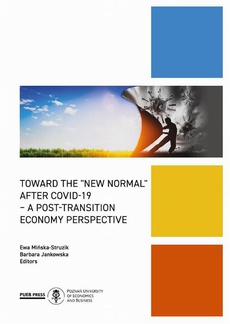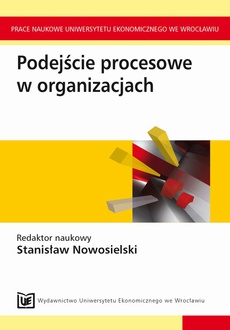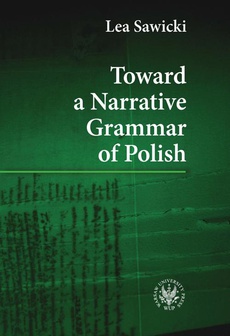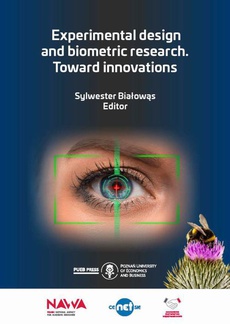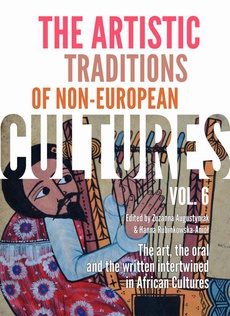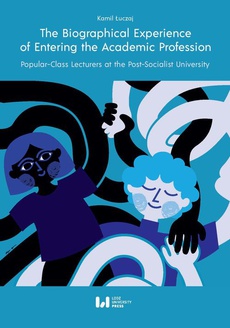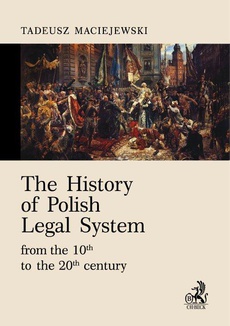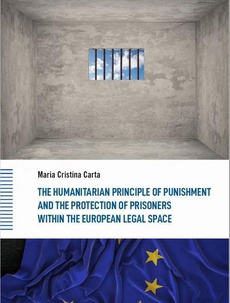POLECAMY
Toward the „new normal” after COVID-19 – a post-transition economy perspective
Redakcja:
Wydawca:
Format:
ibuk
Toward the „new normal” after Covid-19 – a post-transition economy perspective contains a collection of 21 papers addressing the societal, political, economic, and managerial challenges of the post-pandemic world. The book is divided into three parts. Part one touches on the supranational and national level aspects of the Covid-19 pandemic. Part two focuses on business sectors and industries, whereas part three provides the perspective of companies.
Authors – researchers from the Poznań University of Economics and Business, Institute of International Business and Economics – share their research results, voice concerns, and offer recommendations on creating today’s world more immune to shocks and ready for unknowns. The pandemic of Covid-19 revealed many weaknesses of the global economy, national economies and states, business sectors, and individual companies. It’s undoubtedly the turning point, but simultaneously it’s an opportunity and a spur to change toward the new and sustainable normal.
| Rok wydania | 2021 |
|---|---|
| Liczba stron | 271 |
| Kategoria | Publikacje darmowe |
| Wydawca | Uniwersytet Ekonomiczny w Poznaniu |
| ISBN-13 | 978-83-8211-061-6 |
| Numer wydania | 1 |
| Język publikacji | angielski |
| Informacja o sprzedawcy | ePWN sp. z o.o. |
Ciekawe propozycje
Spis treści
| Foreword | |
| Part I. CHALLENGES AT THE SUPRANATIONAL AND NATIONAL LEVEL | |
| 1. The economy vs. Covid-19. A macroeconomic approach (Tadeusz Kowalski) | |
| 2. How Covid-19 impacted the European integration processes? The case of EU Cohesion Policy and budget (Ida Musiałkowska, Piotr Idczak) | |
| 3. The European Union’s Common Commercial Policy and the Covid-19 pandemic: reactions and challenges (Grzegorz Mazur) | |
| 4. The future of the European Migration and Asylum Policy (Judyta Cabańska) | |
| 5. Central Bank policy toward the Covid-19 pandemic: Seeking patterns among the most powerful central banks (Anna Matysek-Jędrych, Katarzyna Mroczek-Dąbrowska) | |
| 6. International portfolio diversification during the Covid-19 pandemic time: A study of correlations among post-transition and developed CEE countries (Paweł Śliwiński) | |
| 7. Foreign direct investment and the Covid-19 pandemic: the real economy perspective and theoretical implications (Marian Gorynia, Piotr Trąpczyński) | |
| 8. The impact of Covid-19 on the finances of multinational enterprises from the perspective of balance of payments transactions (Monika Andrzejczak) | |
| Part II. CHALLENGES FOR BUSINESS SECTORS AND INDUSTRIES | |
| 1. Internal substitution in the tourism market: Effects of the Covid-19 pandemic (Agnieszka Niezgoda, Ewa Markiewicz, Klaudyna Kowalska) | |
| 2. The effects of Covid-19 pandemic on sport, video game, and tourism industry: Sentiment analysis of press, Internet articles and Twitter data (Łukasz Bryl, Justyna Majewska, Szymon Truskolaski) | |
| 3. Goods road transport sector facing pandemic crisis (Piotr Banaszyk, Sylwia Konecka, Anna Maryniak) | |
| 4. The Polish logistics real estate market as a link in international supply chains the Covid-19 crisis (Waldemar Budner) | |
| 5. Covid-19 disruption of European agri-food markets: The case of Poland (Magdalena Śliwińska, Rafał Śliwiński) | |
| 6. Consumer acceptance of AR technology in e-commerce in the light of the Covid-19 pandemic: A conceptual perspective (Małgorzata Bartosik-Purgat, Tomasz Grzegorczyk, Wiktoria Rakowska) | |
| 7. Challenges for innovation co-operation in the biopharmaceutical industry during the Covid-19 pandemic (Łukasz Puślecki) | |
| Part III. CHALLENGES FOR COMPANIES | |
| 1. The adoption of Industry 4.0 solutions as a remedy against the pandemic crisis–the case of Polish companies (Barbara Jankowska, Ewa Mińska-Struzik) | |
| 2. Future competences in times of an economic crisis (Anna Łupicka) | |
| 3. The impact of the crisis on the maintenance of sustainable development initiatives: A comparative analysis of local and international companies (Łukasz Małys) | |
| 4. Women’s entrepreneurship in the Covid-19 pandemic crisis (Alicja Hadryś) | |
| 5. Challenges in the currency derivatives management in the OTC market in Poland during the Covid-19 pandemic (Piotr Wybieralski) | |
| 6. Donation crowdfunding as a source of relief for small businesses (Marcin Wieczerzycki) | |

